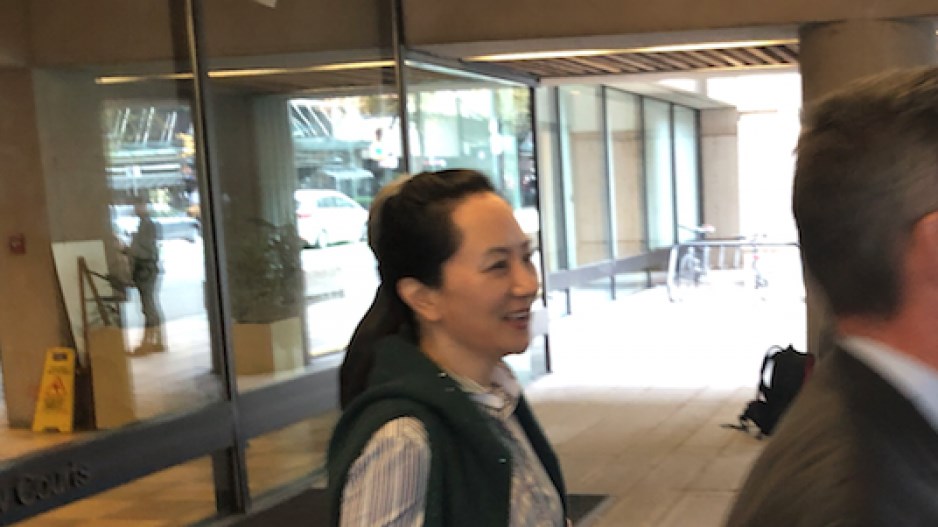B.C. Supreme Court extradition proceedings against Chinese telecommunications Huawei’s chief financial officer Meng Wanzhou will not be broadcast, a judge has ruled.
Meng was arrested at Vancouver International Airport on a U.S. extradition request in December 2018. A U.S. court issued an arrest warrant for Meng in August 2018 on charges of using banks in the United States to handle funds from Skycom, a suspected Huawei front company operating in Iran.
A consortium of 13 domestic and international media organizations applied to broadcast proceedings but Crown prosecutors and Meng’s defence team were opposed to the application.
The consortium argued that, while the courtroom is open, most members of the public cannot attend.
As such, they argued, online streaming and broadcasting of the proceedings was necessary to make proceedings that have attracted worldwide attention accessible to the public.
Meng opposed the suggestion, citing adverse effects on the proper administration of justice and on the fairness of these proceedings and on a U.S. trial should she be extradited.
“The key concern is Ms. Meng’s right to a fair trial in the USA, should she be extradited,” Associate Chief Justice Heather Holmes said in a Jan. 13 decision released Tuesday.
Meng also said broadcast would further sensationalize the widely publicized case.
The use of media cameras in B.C. courtrooms is uncommon. The companies said recording devices would be unobtrusive and turned off when the court was not in session. Sessions would have been video recorded and then broadcast via webcasting, online streaming and televising.
Holmes said media have so far conducted themselves responsibly and professionally.
“However, the media consortium would not be able to control the further use by others of its online streaming or its broadcasts,” Holmes said.
“It would also be open to others to distort portions of the material for their own purposes and to broadcast them as though they were authentic,” she said.
Such risks would be beyond the court’s control, Holmes said.
@Jhainswo




